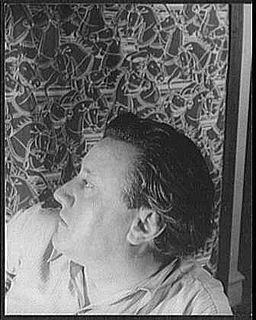A Quote by Albert Camus
A work of art is a confession.
Quote Topics
Related Quotes
In most modern instances, interpretation amounts to the philistine refusal to leave the work of art alone. Real art has the capacity to make us nervous. By reducing the work of art to its content and then interpreting that, one tames the work of art. Interpretation makes art manageable, conformable.
In the twentieth century the Reformed tradition was developed in several ways including additional confessions (Barmen, the Belhar Confession, the 1967 Confession of the PC(USA), and so on). It was also significantly augmented by the work of important thinkers like Karl Barth, T. F. Torrance, Jürgen Moltmann, Emil Brunner, Kathryn Tanner, and so on.
Art has to be a kind of confession. I don't mean a true confession in the sense of that dreary magazine. The effort it seems to me, is: if you can examine and face your life, you can discover the terms with which you are connected to other lives, and they can discover them, too - the terms with which they are connected to other people.
What is it about a work of art, even when it is bought and sold in the market, that makes us distinguish it from . . . pure commodities? A work of art is a gift, not a commodity. . . works of art exist simultaneously in two “economies”, a market economy and a gift economy. Only one of these is essential, however: a work of art can survive without the market, but where there is no gift, there is no art.
I’m a writer, and everything I write is both a confession and a struggle to understand things about myself and this world in which I live. This is what everyone’s work should be-whether you dance or paint or sing. It is a confession, a baring of your soul, your faults, those things you simply cannot or will not understand or accept. You stumble forward, confused, and you share. If you’re lucky, you learn something.
Children of God should not make a general confession by acknowledging their innumerable sins in a vague manner, because such confession does not provide conscience opportunity to do its perfect work. They ought to allow the Holy Spirit through their conscience to point out their sins one by one. Christians must accept its reproach and be willing, according to the mind of the Spirit, to eliminate everything which is contrary to God.
art is the most general condition of the Past in the present. ... Perhaps no work of art is art. It can only become art, when it is part of the past. In this normative sense, a 'contemporary' work of art would be a contradiction - except so far as we can, in the present, assimilate the present to the past.







































